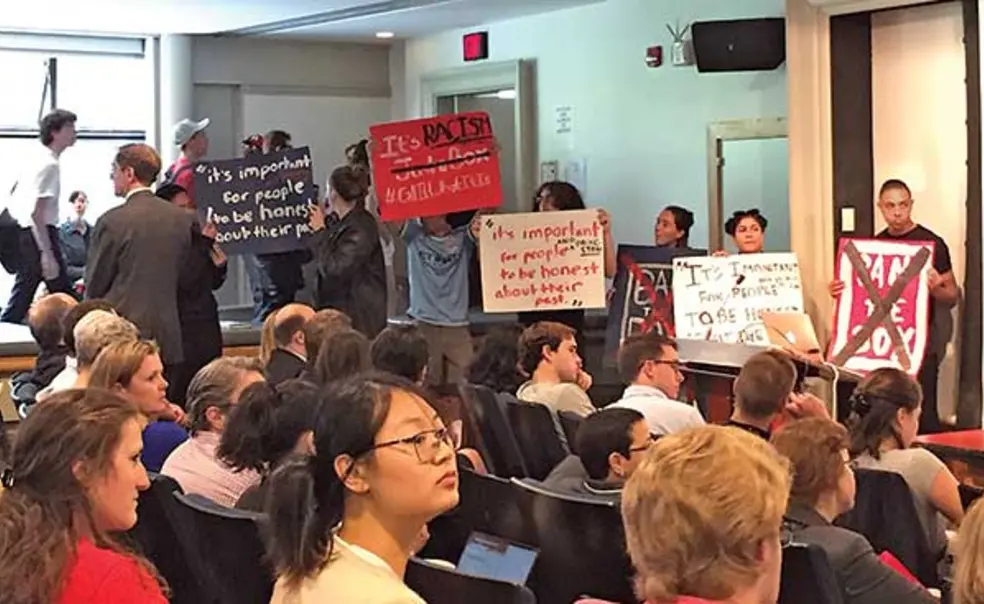Undergraduate Application Revised; Criminal-History Question Extended to Graduate School Applicants
In the face of student activism seeking to “ban the box” that asks admission applicants about their criminal history, the University is changing how it asks undergraduate applicants — and is adding the question for Graduate School applicants.
During the admission cycle that begins this fall, the Graduate School will begin asking applicants to disclose whether they’ve been convicted of a crime. While the Graduate School appreciates “the robust discussion and dialogue” with ban-the-box protesters, the University “has an obligation for the safety of its community,” said Princeton spokesman Ben Chang.
He said graduate students “assume positions of authority in the classroom” as teaching assistants and preceptors, and that grad students are the only group in the University who are not asked about their criminal histories nor required to undergo background checks.
Applicants will not be asked to disclose a simple drug-possession conviction, an act of civil disobedience, or an offense in a foreign country that would not be a crime in the United States, Chang said.
Graduate School applications are initially reviewed by the academic departments, which will not see information related to the criminal-history question, Chang said. That will be retained by the dean’s office and will be part of its review, he said.
Undergraduate applicants in the upcoming admission cycle will be asked to disclose misdemeanor or felony convictions and to describe “in as much detail as you’d like the ways in which this experience has had an impact on your life.” The University’s wording adds that “past mistakes often happen in contexts that deserve and require explanation and amplification.”
Applicants will be told that a prior conviction does not disqualify them from consideration, and information about a past conviction will not be available during the initial review by the admission staff. The information will be shared during later readings of the files, the University said, “in the context of the first, non-prejudicial review of the application.”
The new wording for Princeton’s Common Application supplement was recommended by the Faculty Committee on Undergraduate Admission and Financial Aid and approved by President Eisgruber ’83, who has consistently supported asking applicants about past convictions. Dean of the College Jill Dolan said very few applications are received from students who report a prior conviction.
Dolan said the committee met several times with members of Students for Prison Education and Reform (SPEAR), which has campaigned for several years to eliminate the conviction question as part of its efforts against mass incarceration.












1 Response
Paul Sheldon *66
6 Years AgoA Princeton Record for Arrests?
The Princeton Alumni Weekly reports that Graduate School applicants will now be asked to disclose if they have been convicted of a crime, but that acts of civil disobedience need not be disclosed. I am grateful that Princeton offers that exception, while also noting that many of those committing civil disobedience feel that what they have done is no crime and should be recognized as a legitimate action. I wonder if I hold a Princeton record for most arrests of any Princeton graduate. I believe it’s 21 at the moment. On Aug. 6 (Hiroshima Day) I intend to carry a copy of the U.N. Nuclear Weapons Ban Treaty to the workers of the nation’s largest nuclear-weapons contractor. Make the number 22 if I don’t get all the way up the driveway.